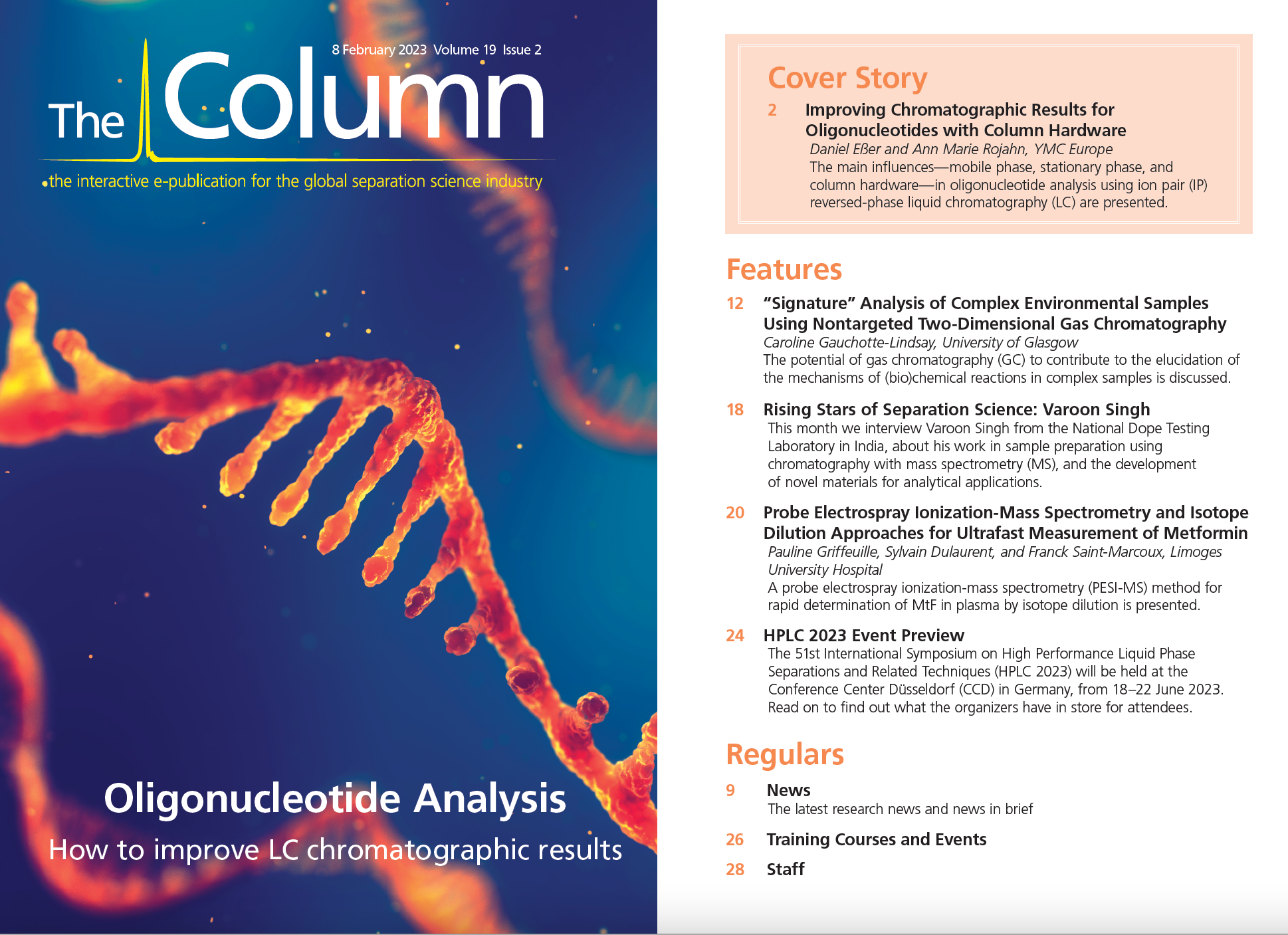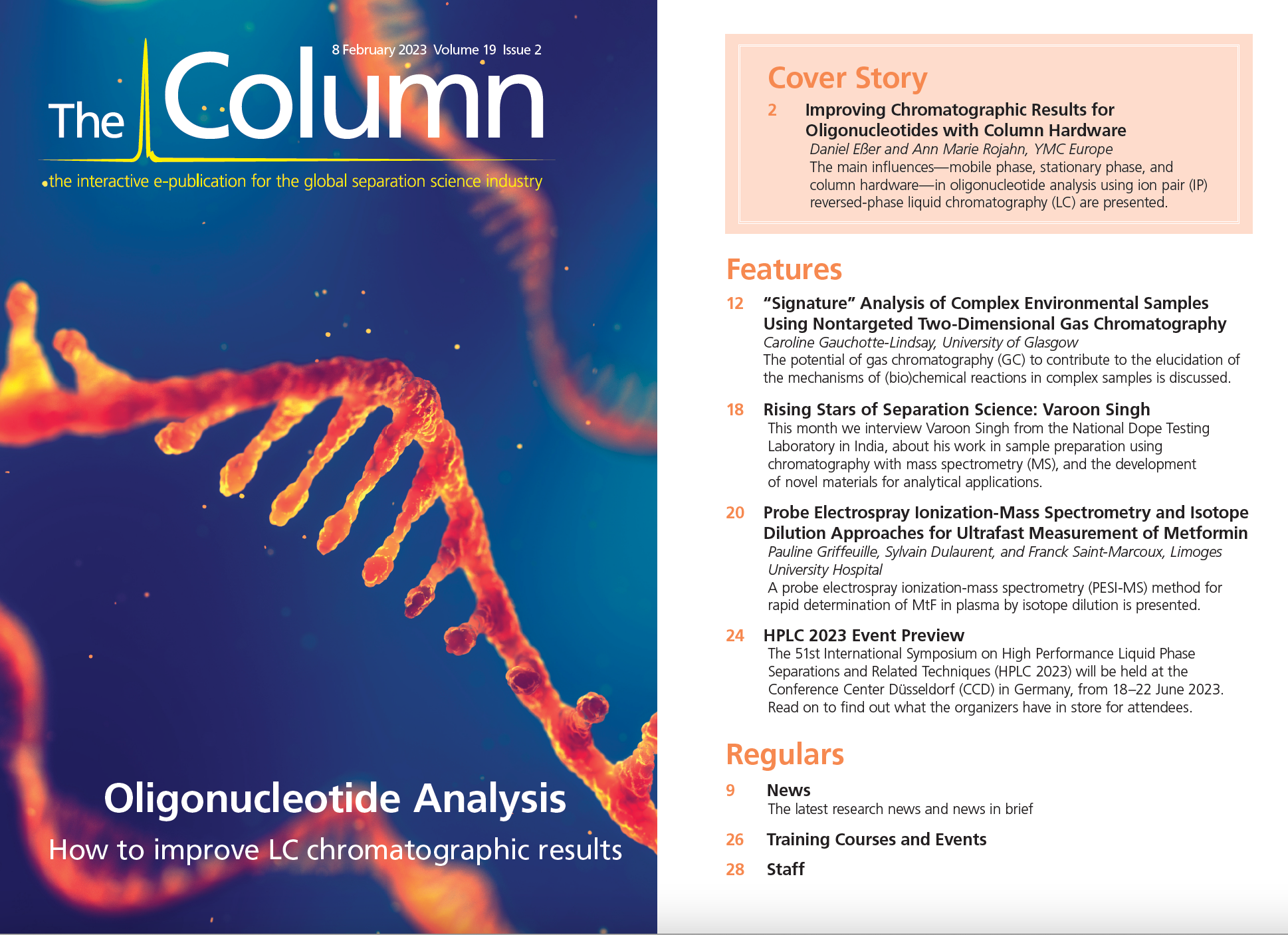The Chromatographic Society 2023 Martin and Jubilee Awards
The Chromatographic Society (ChromSoc) is pleased to announce that the 2023 Martin and Silver Jubilee Medals are awarded to Professor Janusz Pawliszyn and Professor Jared L. Anderson, respectively.
2023 Martin Medal Winner Janusz Pawliszyn, University of Waterloo, Canada: The Martin Medal is named after Professor A.J.P. Martin who, together with Richard Synge, received the Nobel Prize for Chemistry in 1952 for their seminal work on partition chromatography. The award represents the highest honour that the ChromSoc confers.
Janusz Pawliszyn joined the University of Waterloo, Canada, where he became a professor in 1988. He received funding from the Natural Sciences and Engineering Research Council that he used to invent the solid-phase microextraction (SPME) technique, which “uses a solid coating on a sample probe to selectively extract chemical substances from blood, saliva, urine, and even plasma”. SPME has been said to have revolutionized many areas of sampling and analysis.
While Professor Pawliszyn’s name has become synonymous with SPME, he has conducted research widely in the area of sample preparation, his work becoming more topical as interest in “green chemistry” began to increase. His current primary focus is on the design of highly automated and integrated instrumentation for the isolation of analytes from complex matrices and the subsequent separation, identification, and determination of these species. The primary separation tools used by his group are gas chromatography (GC), liquid chromatography (LC), and capillary electrophoresis (CE) coupled to a variety of detections systems, including a range of mass spectrometry (MS) techniques.
2023 Silver Jubilee Medal Winner Jared L. Anderson, Iowa State University, USA: The Jubilee Medal was created in 1982 to mark the 25th anniversary of the ChromSoc, with the intention of recognizing up-and‑coming separation scientists who have made major use of separation science in their own field or have made important contributions to a particular area of separation science.
Jared L. Anderson (Alice Hudson Professor of Chemistry) joined the chemistry faculty of the Iowa State University in August 2015. The focus of Anderson’s research is on a broad range of separation science and sample preparation areas. He is specifically interested in employing and understanding the role that ionic liquids (ILs) and polymeric ionic liquids (PILs) play in chromatographic separations and sample preparation, particularly microextraction-based techniques.
His research interests include the application of magnetic ILs in nucleic acid extraction and preservation, the analysis of genotoxic impurities and residual solvents in active pharmaceutical ingredients, and the development of new stationary phases for the analysis of complex samples using comprehensive two-dimensional gas chromatography.
He currently holds seven patents and has published over 180 peer-reviewed publications, five book chapters, and has co‑edited a book series published by Wiley titled Analytical Separation Science. His Hirsch index (h-index) is 52.


.png&w=3840&q=75)

.png&w=3840&q=75)



.png&w=3840&q=75)



.png&w=3840&q=75)














